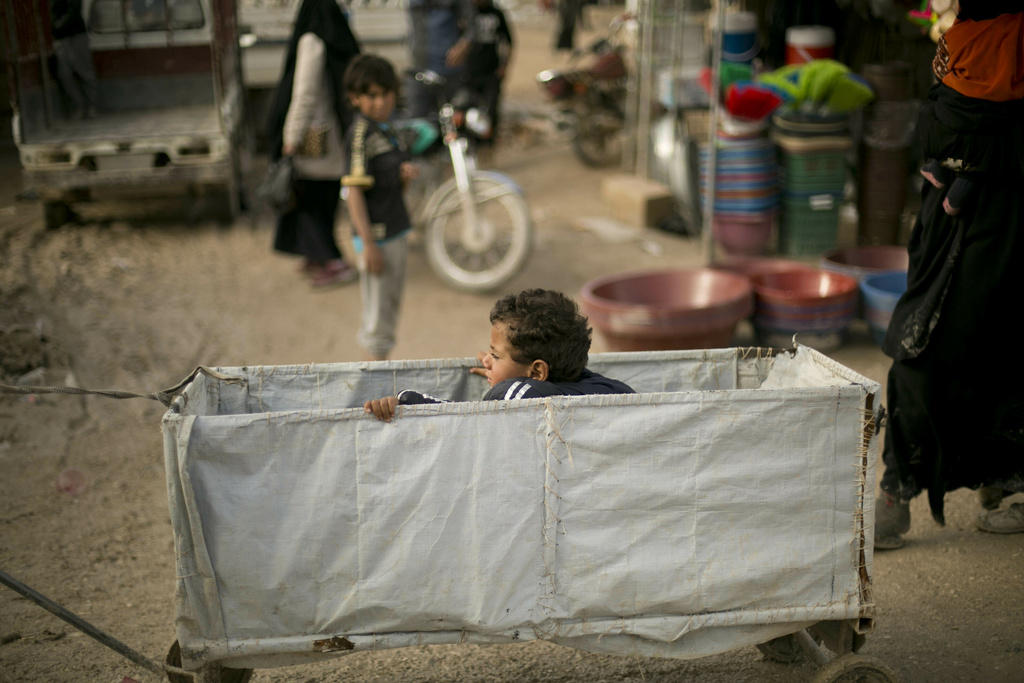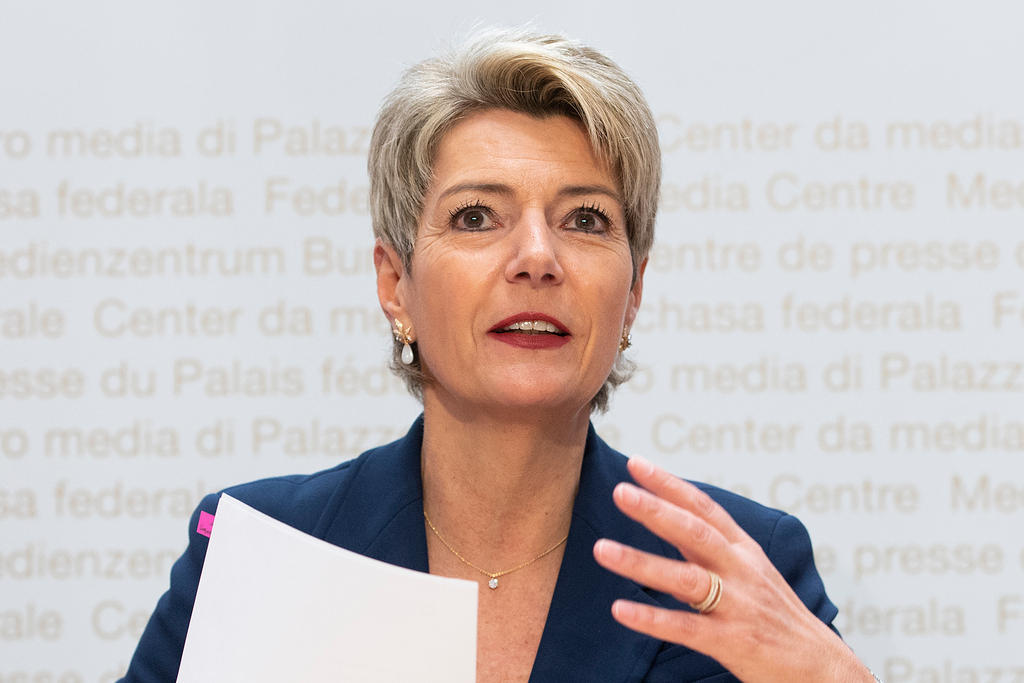What to do with the children of Islamic State?

Pictures of suffering children invariably invoke our sympathy, our outrage, and our desire to do something to save these poor young ones caught up in a situation they had no hand in, and often barely understand.
In the 1980s the images of starving babies in Ethiopia caused such horror that they inspired a global movement, Live Aid.
In the 1990s the terror and pain of tiny children wounded by shelling and sniper fire in Sarajevo provoked outrage. Darfur, Aleppo, Yemen, even as we weary of the endless crises the world inflicts on itself, our instinctive desire to give children a chance at life, to protect them, seems infinite.
Or is it? “Thousands of kids under five live here, with weapon wounds and burns on their faces, but without any health care… I saw five kids surround their mother and watch her slowly die.” These words are part of an eyewitness account from Fabrizio Carboni, the ICRC’s director of operations for the Middle East. The children he saw, and thousands more like them, are the exception, it seems, to our sympathy instincts.
These are the children of Islamic State. Confined for weeks in the overcrowded Al Hol camp in Syria, with little shelter, sanitation or medical care.

More
Switzerland refuses to repatriate its jihadists
The children nobody wants
“These children are unwanted,” says Juliette Touma of the United Nations Children’s Fund (UNICEF). “Whichever nationality they have, they are unwanted by everybody.”
There are over 70,000 people in Al Hol, the vast majority of them women and children. There are at least 1,000 children who are on their own. The parents, now perhaps dead, were loyal to Islamic State until the bitter end, subjecting themselves, and their children, to horrific violence and deprivation rather than surrender the last tiny territory of the Caliphate.
“These children have gone through unimaginable horrors,” says Touma. “They don’t even have the words to describe what they have gone through, they desperately need specialist psychosocial support. But no one wants to talk about it, no wants to take responsibility.”
Unease in Geneva
Even in Geneva, the world’s humanitarian capital, there is unease, and a certain reluctance, to say too much about the situation in Al Hol.
On his return from visiting the camp, Carboni met UN diplomats, described the dire humanitarian situation, and appealed to them to show “humanity and impartiality”.
“The people in this camp are associated with an extremist group, but it would be a collective defeat if we cannot overcome the pressure to dehumanize them,” he said.
But so far, several states with citizens, including children, in Al Hol camp, are hesitating. Britain has moved to deprive some of their citizenship, and did not intervene to help the new-born baby, legally a British national, of IS bride Shamima Begum. After three short weeks of life, all of them in Al Hol, the baby died.
There are believed to be three Swiss girls in Al Hol, the daughters of a Swiss woman who joined IS years five ago. Two of those girls were born in Switzerland, one reportedly has a shrapnel wound that is going untreated. Their fathers, long since estranged from the mother, who found a third husband in Syria, have appealed for help to bring their daughters home, but the Swiss authorities cannot seem to decide what to do about this case, and so the little girls wait in Al Hol.
The French have dropped in to Al Hol and taken a few orphaned children back to France, but no more. The Germans have apparently been in to check on the welfare of their citizens but not taken any to Germany. Only, interestingly, the Russians seem to be taking both Russian women and their children back home.
One aid worker, speaking on background, said she thought the Russians took the view that “sending those women back to the villages they came from may be punishment enough. Everyone will know what they have done”.
Stigmatisation
Living ostracized in a Russian village may be marginally preferable to fighting for survival in Al Hol, nevertheless, aid agencies are trying to remind countries that children are not responsible for the sins of their parents, and should not be stigmatized.
“We saw this after the battle of Mosul,” says Francesco Motta, the former head of the human rights division at the UN Assistance Mission for Iraq (UNAMI). Motta remembers visiting a home in Mosul, where a Sunni woman was looking after orphans, many of them children of foreign fighters.
“These kids were clearly not Iraqis, and they were tiny, lots of them just two or three-years-old. But this woman was being subjected to terrible abuse because she was caring for them,” he said.
No sympathy for terror
It is, most people would admit, hard to feel sympathy for those who have signed up to extremist ideology. The citizens of Paris, London, Brussels, Madrid, or New York know all too well the horror of inexplicable violence, coming out of nowhere on a sunny morning, a balmy evening, or the daily commute to work.
In their approach to their citizens who have joined IS, countries that have suffered such attacks are demonstrating that they really don’t want to re-import the problem, and that they don’t want to face the inevitable backlash from voters, many of whom would much prefer that IS wives and their children stay in Al Hol forever.
Some counterterror experts question the strategy, pointing out that a tough deradicalization programme at home is more likely to prevent the spread of terrorism than simply abandoning the problem to fester somewhere in Syria and Iraq.
There are other questions too: should, for example, the children of IS be separated from their mothers? Touma believes that generally “children should not be separated from their primary carers”.
Motta, meanwhile, suggests this might not always be right. “Some of their mothers are still really hard core IS, and they continue to indoctrinate their kids.”
It is a very complex problem, with political, judicial, and strategic aspects. There are no easy answers, but at its heart the question of what to do with the children in Al Hol is essentially a moral one, as Carboni pointed out.
“Humanitarians have no solutions for political issues. And there will be no painless solution. But we should not see these people as an anonymous, threatening mass. It’s clear that some may represent a security threat, but many are victims, especially the children. Above all everyone here is human,” he said.
“What have these kids done? Nothing. They have to leave, but to where?”
That is a question the countries with citizens in Al Hol must now answer, before it is too late.

In compliance with the JTI standards
More: SWI swissinfo.ch certified by the Journalism Trust Initiative












You can find an overview of ongoing debates with our journalists here . Please join us!
If you want to start a conversation about a topic raised in this article or want to report factual errors, email us at english@swissinfo.ch.